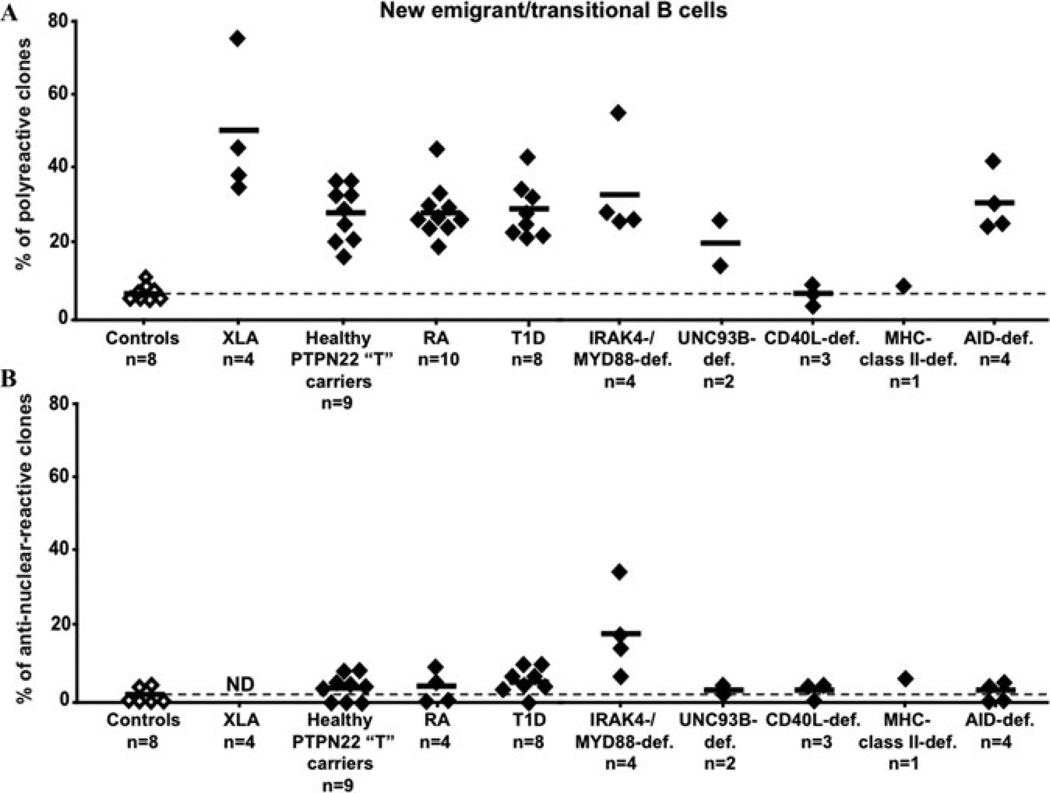Figure 2.
Central B cell tolerance requires proper BCR and TLR signaling. The frequencies of polyreactive (A) and antinuclear (B) new emigrant/transitional B cells are compared between controls (open diamonds), subjects with the PTPN22 “T” risk allele, patients with diverse PID, rheumatoid arthritis (RA), and type 1 diabetes (T1D) (black diamonds). Alteration in either BCR or TLR signaling results in a failure to counterselect developing autoreactive B cells in the bone marrow and results in increased frequencies of polyreactive new emigrant/transitional B cells. IRAK4- and MYD88-deficient new emigrant/transitional B cells were especially enriched in antinuclear clones, as shown in B.

